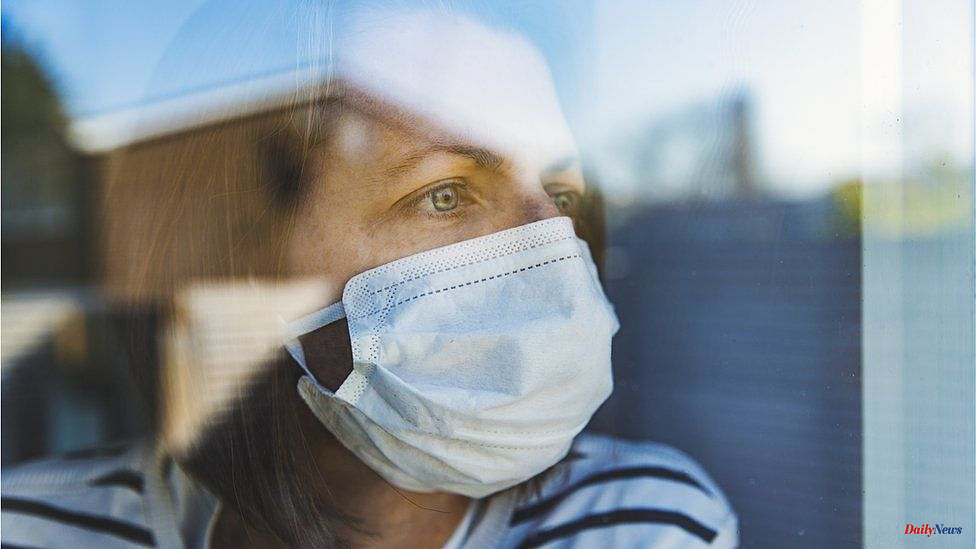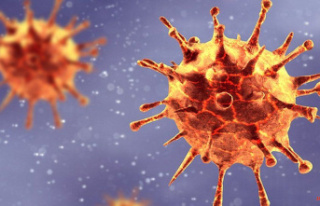The legal requirement that people isolate themselves if they are positive for Covid is being lifted as one of the last Covid restrictions in England.
Boris Johnson has laid out the strategy for "living alongside Covid".
Wales, Scotland, and Northern Ireland will soon reveal their next steps.
Many things have changed since the first outbreak of coronavirus in the UK. New vaccines, treatments, and better understanding of the virus' spread all help to reduce the risk.
However, this does not mean that coronavirus is gone.
What can you do if your concern is expressed?
Since the outbreak of the pandemic, Lorna Fillingham (11-year-old) and Emily-May (11-year-old) have been protecting their families.
Emily May has a rare genetic condition which renders her clinically vulnerable.
She just received her first vaccination and will need to wait eight weeks before she receives her second.
Lorna says that the family has done over 650 days of home schooling and must plan trips ahead. They also have to assess the risk to Emily May before she leaves home. "Our world just got smaller again," Lorna said.
Some charities representing people at greater risk echo this sentiment.
Philip Anderson from the MS Society says that the changes will cause more confusion and worry for thousands of people with weak immune systems.
Although the rules are changing, it does not mean that everyone's behavior will change immediately.
Some people have made the decision to stop wearing face-coverings in England. Others have not, even though there have been changes to the rules.
Although there may not be any legally binding rules regarding isolating, it is possible that guidance will be replaced, helping people to navigate the risks associated with living with the virus.
It is possible to still have the virus in large quantities. There are also uncertainties about how many cases will be reported as we enter Spring.
People who used to be sheltered or stayed at home may feel pressured to go back to work, navigate in public places, and return to their homes.
It will also be more difficult to determine who may be infected once self-isolation rules are removed and mass testing is completed.
Although it is no longer a legal requirement, people will be expected to remain at home and avoid contact with others when they have Covid.
British Medical Association, a doctors' union, has called for clear public health guidance. It states that people shouldn't go to work or to school while they are ill and should not socialize. This is to not only help the sick, but also to reduce the risk of spreading the virus to others.
It states that all workers, even casuals, must receive adequate sick pay.
Vaccines are still a key component of protection.
Extra doses are given to those at greatest risk, the clinically extremely vulnerable, in order to strengthen their defenses against serious illness.
Although the jabs may not be 100% effective, data shows that these doses can provide good protection for people with cancer.
According to the Department of Health and Social Care, people most at risk should follow the same guidelines as the general population. However, they should consider taking additional precautions to lower their chances.
Your doctor should advise you on the best precautions for you.
Guidance for those most at-risk in England, updated 24 December 2012, suggests:
Experts agree that the negative impact on mental health of avoiding others cannot be understated. Everyone will need to make their own judgment.
People who are concerned about mixing with others might consider distance-aware badges. These badges indicate that someone is aware of their need for extra space.
Others suggested that households could be provided with masks of high quality, similar to those used by healthcare workers for protection.
A pulse oximeter is another piece of equipment that could be helpful. This small device can be slipped onto your finger and gives you an indication of how oxygen levels are. If they feel low, GPs might advise patients to test their levels and to go to the hospital.
A number of medications are available now for those most in need.
These include antivirals such as ritonavir or molnupiravir.
What are the best treatments for Covid?
You should start them as soon after you catch the virus. It is best to have a spare Covid test in case of symptoms.
Antivirals can also be obtained through the University of Oxford's study. This is for people with Covid over 50 or 18 with a medical condition that places them at higher risk.
A second trial will determine if high-risk individuals could benefit from prophylactic medication prior to being exposed to Covid.
To help people stay safe, it is possible that there will be more treatments and technologies. For some, however, the next few months will bring about big changes.
The NHS and charities can offer additional advice if you feel anxious or are having trouble with lifting restrictions.
Gemma Peters is the CEO of Blood Cancer UK. She says that the government should provide additional support to those who are most vulnerable, including making sure Covid treatments are available.












